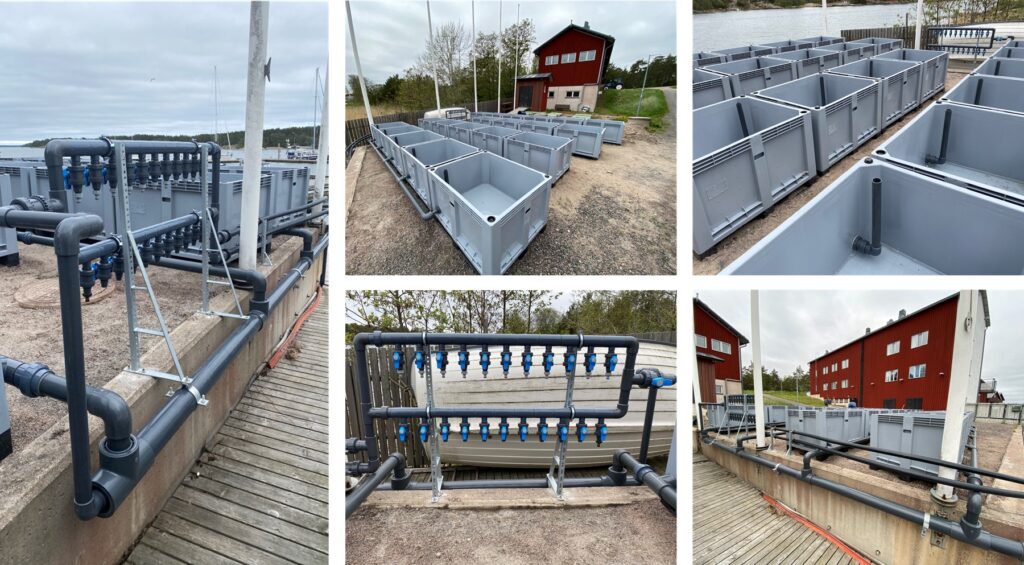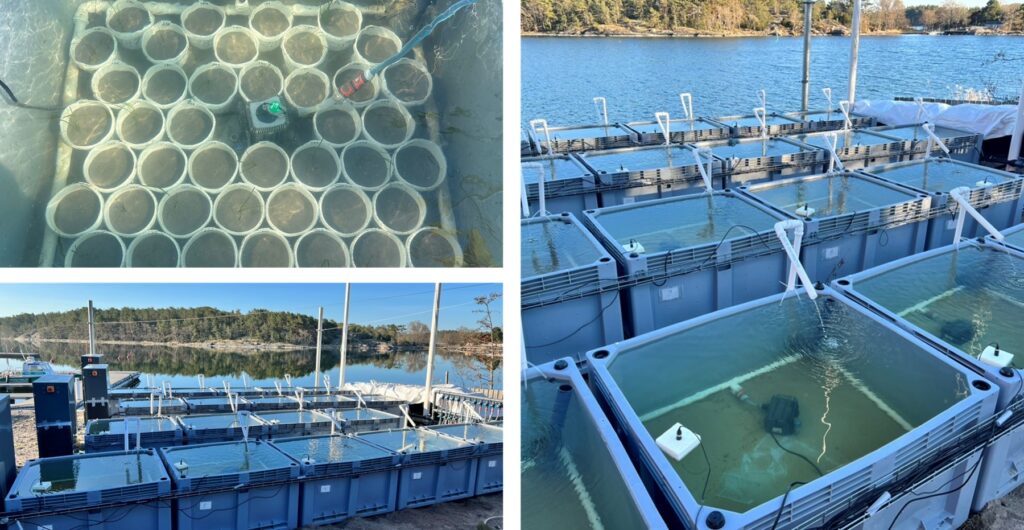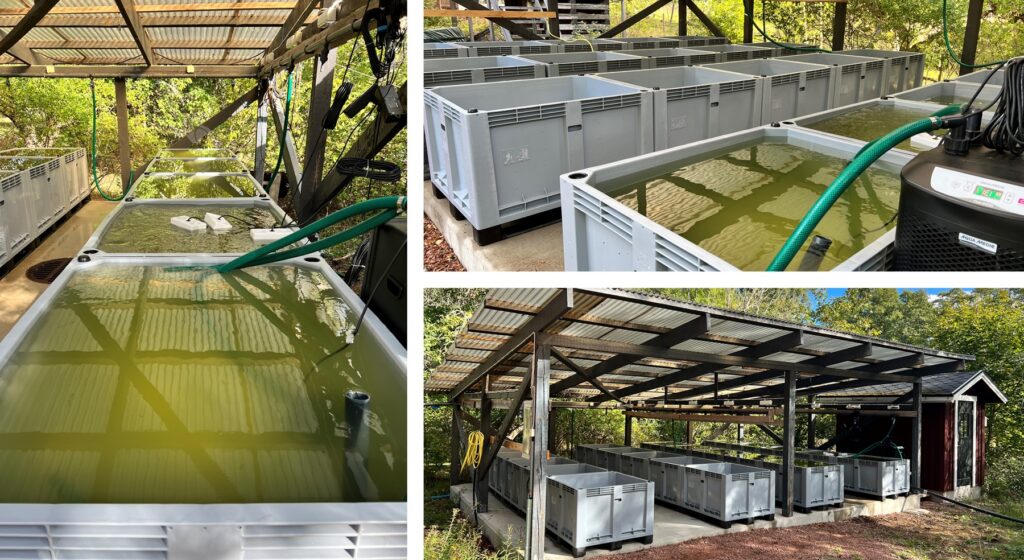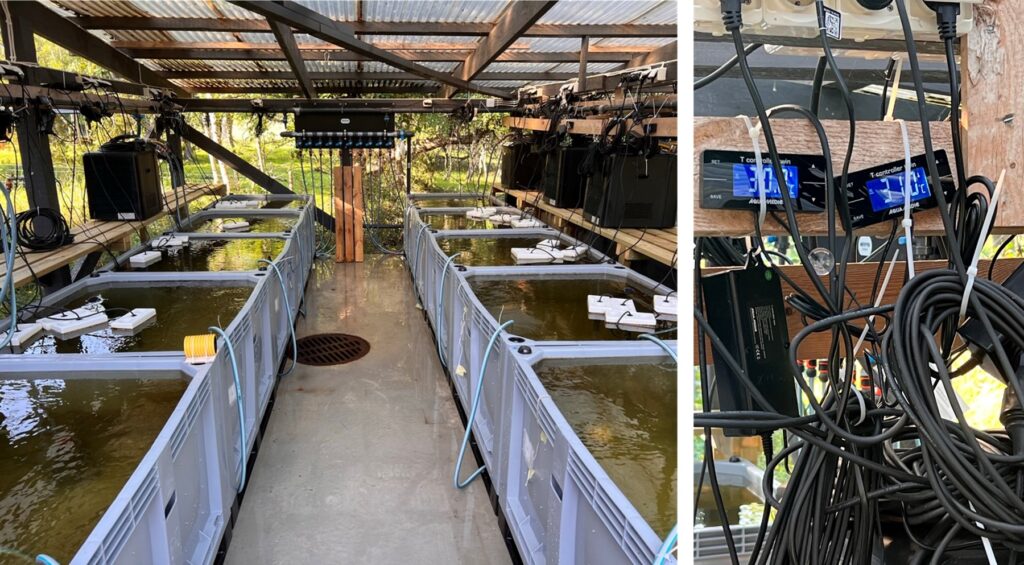At Åbo Akademi University, across the Archipelago Sea and Åland Islands, we maintain a research infrastructure network for community-scale experimental research.
Manipulating community composition, as well as diverse underwater climates, including their extremes (such as marine heatwaves), allows us to glimpse into the future ocean.
Mesocosms represent a tool to bridge laboratory (Petri-dishes to aquaria) and field experiments and provide the advantage that any underwater climates can be manipulated synchronously (common garden) and replicated.
Two mesocosm systems, of twenty (20) 600 L tanks each, are located at the Archipelago Centre Korpoström by the Archipelago Sea (image compilations 1 & 2) and at Husö Biological Station at Åland Islands (image compilations 3 & 4).
The systems mimic most natural conditions in nutrients and organic matter and daily fluctuation of abiotic factors such as water temperature, salinity, pH, and oxygen, as well as light.




Aquatic mesocosms, or experimental water enclosures, are designed to provide a limited body of water with close to natural conditions, in which environmental factors can be realistically manipulated.
Such mesocosms provide a powerful tool to link between in situ but often only correlative field studies on the one side, and small-scale far from natural laboratory experiments including a single or a few species only, on the other side. Thus mesocosm studies have the advantage compared to laboratory approaches that it maintains a natural community under close to natural conditions, taking into account relevant aspects from ‘the real world’ such as indirect effects, biological compensation and recovery, and ecosystem resilience.
The mesocosm approach is therefore often considered to be the experimental ecosystem closest to the real world, without losing the advantage of reliable reference conditions and replication. By integrating over multiple direct and indirect species effects up or down the food web, the responses obtained from mesocosm studies can be used for parameterization in ecosystem and biogeochemical models.
Source: Mesocosm.org